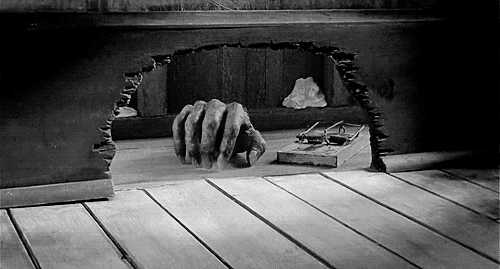
Director: Arnaud Desplechin
Guión: Emmanuel Bourdieu, Arnaud Desplechin, Arthur Symons (historia)
Reparto: Summer Phoenix, Ian Holm, Fabrice Desplechin, Akbar Kurtha
Música: Howard Shore
Fotografía: Eric Gautier
Fecha de estreno: 4 de octubre del 2000 (Francia)
Género: Drama
Sinopsis: Una chica judía del Londres del siglo XIX sueña con convertirse en actriz de teatro.
AKA: eSTheR KaHN (Francia) (poster title)
Duración: USA:142 min
País: Francia / Reino Unido
Idioma: Inglés
Color: Color
Sonido: DTS / Dolby Digital
Certification: Australia:M / France:U / Portugal:M/12 / Switzerland:14 (canton of Geneva) / Switzerland:14 (canton of Vaud)
Filming Locations: London, England, UK
[quote]The French, who have a term for everything, created the useful category film maudit—literally, "cursed film"—to describe those movies rendered marginal by disrepute. Some films maudit are intentionally outré. Others are merely luckless, consigned to the leper colony by their impoverished means or blatant nuttiness.
Arnaud Desplechin's Esther Kahn is the eccentric sort of film maudit. Masquerading as a doomed international co-pro, it is an English-language period piece set in late-19th-century London, by a French director and starring an American actress, Summer Phoenix, best known for her family name. When it premiered at the 1999 Cannes Film Festival, Esther Kahn was hailed by a few French cineastes, especially those associated with Cahiers du Cinéma, and derided by nearly everyone else. It was snubbed by the New York Film Festival—which had selected Desplechin's two previous features, La Sentinelle and My Sex Life . . . or How I Got Into an Argument—and damned by Variety as "misguided," "egregious," and "senselessly long."
Indeed, Esther Kahn is a baffling experience, not because, at nearly two and a half hours, it feels overextended. (It doesn't, and even has a pleasingly abrupt punchline.) Esther Kahn is confounding because it solemnly advances a daringly preposterous thesis. Acting cannot be acted. This is a movie about the nature of acting—or, more specifically, the nature that creates an actress—centered on what appears to be a spectacularly unconvincing title-role performance.
A product of London's Jewish slum, Esther Kahn grows up in a tailor shop—shunted to the side by her clamorous family and mysteriously scarred by her Darwinian neighborhood. Having matured into the self-absorbed Phoenix, she comes alive only when quarreling with her mother (Frances Barber) or attending the theater. There's a long scene in which Esther suddenly blooms, tropistically fighting her way through the crowds to bask in the footlights of a trashy Yiddish melodrama (presented without subtitles).
Soon after, Esther auditions for a British theatrical company and gets a minor role. Her mother is surprised—but no more so than the spectator. As willful and opaquely good-looking as Phoenix's Esther is, you can believe her as a ghetto primitive—it's more difficult to accept that any theater would employ her. Her affect is sullen and aggrieved; her face in repose is slack jawed; she is given to inappropriate smirks; her posture is hunched; her voice is childishly high-pitched; and her diction is a Cockney garble. (Moreover, she stubbornly refuses to change her name.)
Desplechin evokes Victorian London with emptied-out locations and images cleverly composed to permit Eric Gautier's camera to stroll through Esther's limiting environment. Modest as it is, Esther Kahn seems less false than an elaborate historical re-creation like From Hell. But given to anachronism, the movie doesn't feel especially authentic so much as successfully imagined. Things just happen, as when Esther finds herself tonelessly reading the part of Jessica opposite another Jewish actor's Shylock. Perhaps because he is not Jewish enough, Nathan (Ian Holm) fails to get the part; he does however take Esther as his student, subjecting her to all manner of inexplicable theories and Zen-gibberish exercises in the service of creating her as an actress.
At the end of the course, which seems to change Esther not a whit, Nathan informs her that she's emotionally dead ("as cold and hard as a stone") and instructs her to acquire experience by falling in love. With characteristic single-mindedness, she picks out a womanizing drama critic, Philip (the director's brother, Fabrice Desplechin), and gives herself to him. Their affair blossoms along with her career. Again demonstrating uncanny intuition, Esther presents Philip with a Norwegian copy of Ibsen's latest drama, Hedda Gabler. He obligingly translates the play into English, and suddenly, Esther is cast in the lead for its London production.
It is at this point, some two hours into the movie, that Esther's offstage life and professional acting merge. Philip's betrayal on the eve of the show's premiere rattles her confidence. In a breathtakingly visceral representation of stage fright—replete with instances of dramatic self-abuse—she passionately refuses to go on. (That she will be playing the suicidal Hedda Gabler only adds to the subtext.) The movie's repressed melodrama hilariously explodes. It is the nightmare of all opening nights—in one mishap, the curtain goes up prematurely, with dazed Esther standing absurdly alone onstage—and yet the show must go on. The evening proves to be the fulfillment of her destiny.
Can Esther act? Desplechin dodges the question by filming her onstage activity in slow-motion, accompanied by narrative voice-over or internal monologue. The question is rather, how can Esther act? On one hand, Esther Kahn seems a wacky Marxist parable of proletarian self-actualization. Esther is that mysterious, class-determined "thing" who finds her human component on the stage of history. On the other, Esther Kahn is a detached behavioral study of Summer Phoenix. Hers is some kind of performance, but then, so is this most peculiar movie.
John Hoberman (Village Voice)[/quote]






subs en francés:
subs en español posteados en algún lado por jasi:
Subtítulos en español corregidos


